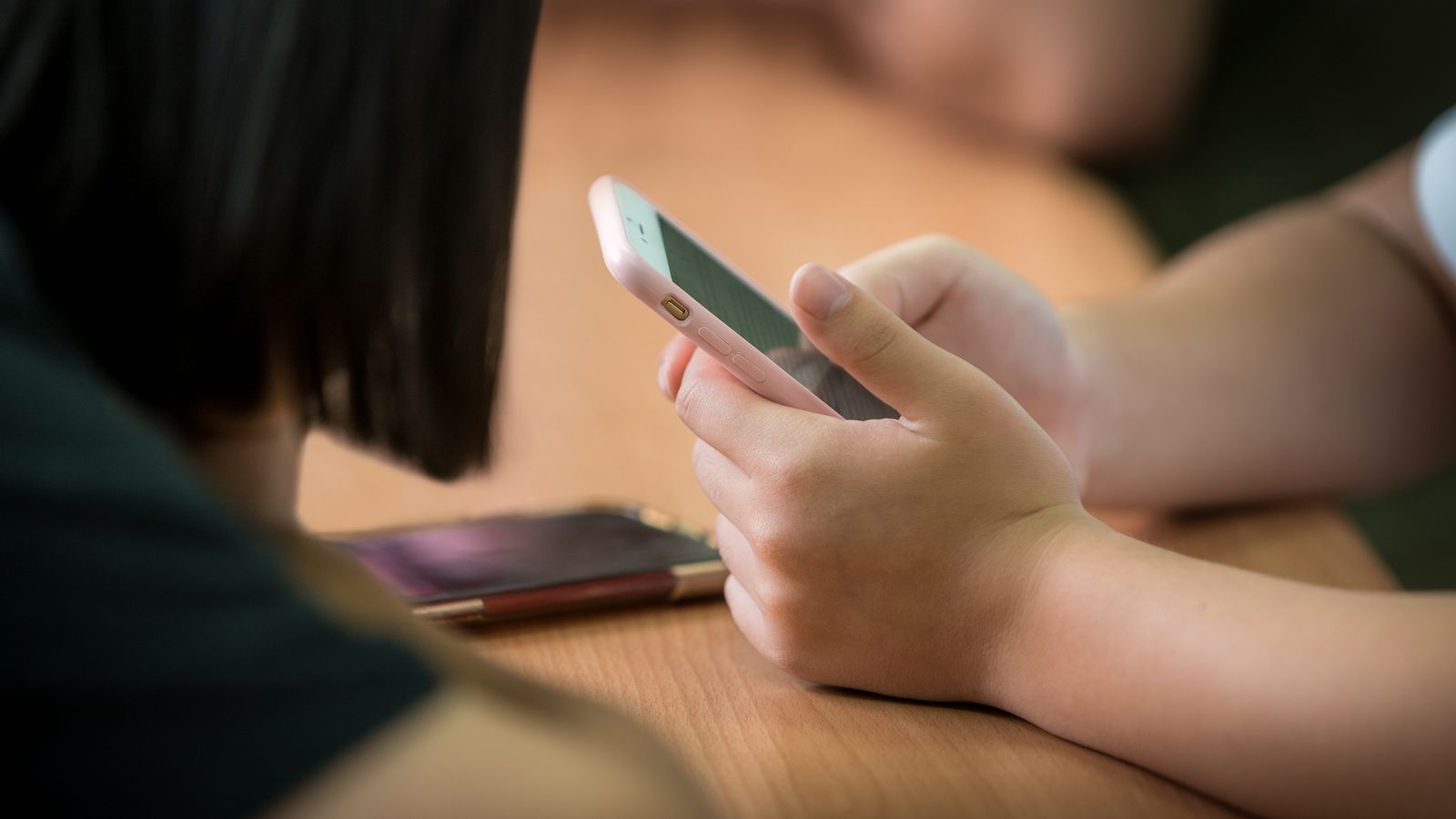'Whole society' approach needed to stop pupils doom scrolling - with most schools already banning phones
A "whole society" approach is needed to stop children doom-scrolling beyond the classroom with most schools already banning mobile phones, research has found.

Data from the children's commissioner for England reveals 90% of secondary schools and 99.8% of primary schools already have policies in place that stop the use of mobile phones during the day.
However, online safety is still the second most cited concern for school leaders, second only to mental health services.
Children's commissioner Dame Rachel de Souza said the findings show banning phones in schools "will not keep children safe when they go home" and stronger action is needed.
Solutions she will call for on Thursday include not giving children under-16s smartphones and greater accountability for tech companies, Sky News understands.
Dame Rachel will also call on parents to model the behaviour they want in their children, such as screen breaks, no phones at meals and not taking phones to bed.
The research showed nearly a quarter of children spend more than four hours a day on an internet-enabled device.
The data includes responses from 19,000 schools, making it the most comprehensive evidence to date on mobile phone policies in the classroom.
It found most schools had strict rules, including not allowing phones on to school grounds at all, requiring pupils to hand them in or requiring them to be kept out of sight.
Secondary schools were more likely to allow some phone use, with about 10% permitting it during breaks or lunchtime.
The children's commissioner said the findings prove that most schools already have phone policies aligned with the Department for Education's non-statutory guidance.
This was introduced by the Tories last year, but the party now says headteachers should be legally required to ban phones from schools, something Labour has ruled out.
Dame Rachel said headteachers do not need "direction imposed nationally by the government", and rather a "whole-society approach to strengthening safety online" is needed to protect children beyond the school gates.
Calls grow for phone ban despite research
Shadow education secretary Laura Trott, who has banned her own children from getting a smartphone until they are 16, said evidence of the damage they do is "undeniable" as she doubled down on her call for a statutory ban.
Daniel Kebede, general secretary of the National Education Union (NEU), said this too was his "personal view", saying a a ban would "alleviate pressure from school leaders, teachers, but also parents".
Speaking at a press briefing ahead of the NEU's annual conference, he added that the country "should look towards Australia" where the senate has passed a social media ban for children under 16.
This is something many MPs have called for, but the UK government has only gone as far as to support a review into the harms caused by apps like Snapchat and TikTok before any decision on restrictions are made.
Some Labour backbenchers fear ministers are shying away from tough measures to appease US tech firms as it seeks a trade deal to avoid Donald Trump's tariffs.
The debate around smartphone usage has been heightened by the recent Netflix drama Adolescence, which centres on a 13-year-old boy suspected of murdering his classmate and the rise of incel culture.
The Online Safety Act passed in 2023 requires social media firms to block children from accessing harmful content and all users from accessing illegal content, but it will not be implemented in full until 2026 and it does not address screen time.
-SKY NEWS






